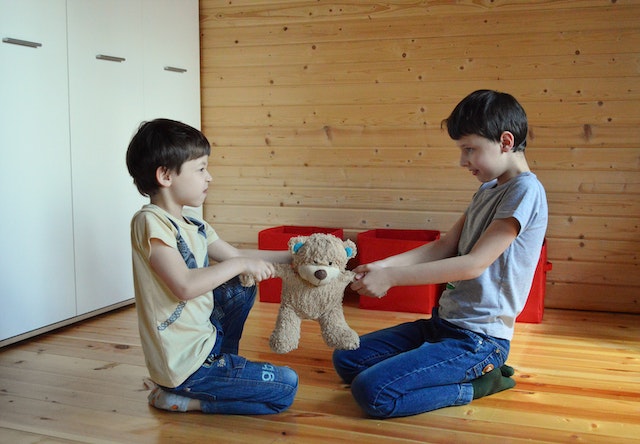Do you feel like your child is always blaming others for their mistakes or shortcomings? Does your child blame others for everything?
It can be frustrating to deal with constant excuses and shifting of blame. But before you lose your patience, it’s important to understand why your child might be doing this and how you can help them break the habit.
Children may resort to blaming others as a defense mechanism when they feel overwhelmed or ashamed of their actions. They might also lack the emotional maturity or cognitive development to take responsibility for their mistakes. Whatever the reason, it’s important to address this behavior to prevent it from becoming a pattern that can lead to a victim mentality.
So, how can you help your child take ownership of their actions and stop blaming others? Here are a few tips:
1. Lead by example
Children often learn by watching their parents, so it’s important to model taking responsibility for your own mistakes. Own up to your errors, apologize when necessary, and demonstrate how you can learn from your missteps.
2. Encourage problem-solving
Instead of focusing on the blame game, encourage your child to brainstorm solutions to the problem at hand. Help them identify ways they can take action to make things right, rather than pointing fingers at others.
Recommended reading: 7 Reasons Why It’s Important To Let Your Kids Struggle
Recommended reading: Teach Your Child How to Deal with Disappointments
Recommended reading: 10 Effective Ways To Teach Your Child Problem Solving Skills
3. Build empathy
Help your child understand how their actions might affect others. Encourage them to put themselves in someone else’s shoes and imagine how they would feel if the roles were reversed. This can help them develop empathy and a sense of responsibility for their actions.
Recommended reading: Teach Your Child To Be Empathetic: An Age-by-age Guide
Recommended reading: Practical Tips To Develop Emotional Intelligence In Kids
Recommended reading: 10 Best Children’s Books On Empathy
4. Focus on growth mindset
Emphasize the idea that mistakes are opportunities for growth and learning. Encourage your child to see their mistakes as a chance to improve, rather than a reflection of their worth or character.
Recommended reading: Why Having A Growth Mindset Matters?
Recommended reading: 9 Tips to Develop Growth Mindset in Children
Recommended reading: Top 20 Books To Help Kids Develop Growth Mindset
5. Acknowledge effort
Rather than solely praising your child for their achievements, make an effort to recognize their effort and hard work. This can help them build a sense of internal motivation and pride in their accomplishments.
Recommended reading: 4 Steps To Help Kids Cope With Failure
Recommended reading: Helping Your Perfectionist Child: Strategies for Parents
Recommended reading: 101 Ways to Praise Your Child the Growth Mindset Way
By implementing these strategies, you can help your child take responsibility for their actions and break the habit of blaming others. It’s important to remember that change takes time and patience, so don’t expect overnight results. But with consistent effort and support, your child can learn to adopt a mindset of accountability and self-improvement.




